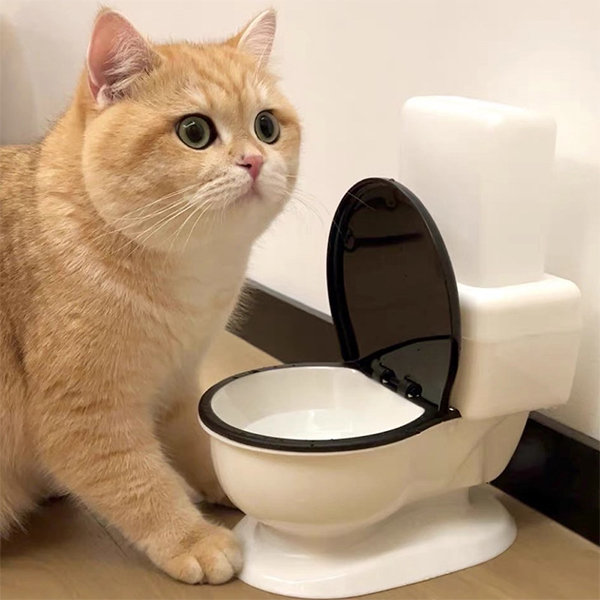Avoid Clogs and Damage: Never Flush Cat Poop Down Your Toilet - Expert Recommendations
Avoid Clogs and Damage: Never Flush Cat Poop Down Your Toilet - Expert Recommendations
Blog Article
The content down below pertaining to How to Dispose of Cat Poop and Litter Without Plastic Bags is without a doubt motivating. Check it out yourself and see what you think about it.

Intro
As feline owners, it's essential to bear in mind how we get rid of our feline friends' waste. While it may appear convenient to purge pet cat poop down the toilet, this technique can have destructive consequences for both the environment and human wellness.
Alternatives to Flushing
Fortunately, there are much safer and extra responsible ways to dispose of cat poop. Consider the complying with alternatives:
1. Scoop and Dispose in Trash
One of the most common method of throwing away pet cat poop is to scoop it into a biodegradable bag and throw it in the garbage. Make sure to make use of a devoted litter inside story and take care of the waste quickly.
2. Usage Biodegradable Litter
Select biodegradable cat trash made from materials such as corn or wheat. These litters are environmentally friendly and can be safely dealt with in the trash.
3. Hide in the Yard
If you have a backyard, consider hiding cat waste in an assigned area away from vegetable yards and water sources. Be sure to dig deep adequate to prevent contamination of groundwater.
4. Set Up a Pet Waste Disposal System
Invest in an animal waste disposal system especially developed for cat waste. These systems utilize enzymes to break down the waste, reducing odor and ecological effect.
Health Risks
In addition to ecological concerns, purging feline waste can likewise position wellness dangers to human beings. Pet cat feces may have Toxoplasma gondii, a parasite that can trigger toxoplasmosis-- a possibly severe health problem, specifically for expecting women and people with damaged body immune systems.
Ecological Impact
Flushing cat poop introduces harmful virus and bloodsuckers right into the water supply, positioning a significant threat to water communities. These pollutants can adversely affect marine life and concession water quality.
Final thought
Accountable animal ownership extends past supplying food and sanctuary-- it also includes appropriate waste monitoring. By refraining from flushing cat poop down the commode and selecting alternate disposal techniques, we can reduce our ecological footprint and secure human wellness.
Why You Should Never Flush Cat Poop Down the Toilet
A rose by any other name might smell as sweet, but not all poop is created equal. Toilets, and our sewage systems, are designed for human excrement, not animal waste. It might seem like it couldn’t hurt to toss cat feces into the loo, but it’s not a good idea to flush cat poop in the toilet.
First and foremost, assuming your cat uses a litter box, any waste is going to have litter on it. And even the smallest amount of litter can wreak havoc on plumbing.
Over time, small amounts build up, filling up your septic system. Most litter sold today is clumping; it is made from a type of clay that hardens when it gets wet. Ever tried to scrape old clumps from the bottom of a litter box? You know just how cement-hard it can get!
Now imagine just a small clump of that stuck in your pipes. A simple de-clogger like Drano isn’t going to cut it. And that means it’s going to cost you big time to fix it.
Parasitic Contamination
Believe it or not, your healthy kitty may be harboring a nasty parasite. Only cats excrete Toxoplasma in their feces. Yet it rarely causes serious health issues in the cats that are infected. Most people will be fine too if infected. Only pregnant women and people with compromised immune systems are at risk. (If you’ve ever heard how women who are expecting are excused from litter cleaning duty, Toxoplasma is why.)
But other animals may have a problem if infected with the parasite. And human water treatment systems aren’t designed to handle it. As a result, the systems don’t remove the parasite before discharging wastewater into local waterways. Fish, shellfish, and other marine life — otters in particular — are susceptible to toxoplasma. If exposed, most will end up with brain damage and many will die.
Depending on the species of fish, they may end up on someone’s fish hook and, ultimately on someone’s dinner plate. If that someone has a chronic illness, they’re at risk.
Skip the Toilet Training
We know there are folks out there who like to toilet train their cats. And we give them props, it takes a lot of work. But thanks to the toxoplasma, it’s not a good idea.

I ran across that write up about How to Dispose of Cat Poop and Litter Without Plastic Bags while doing a lookup on the search engines. Be sure to set aside a second to promote this content if you appreciated it. Thanks a lot for your time. Visit us again soon.
Get Your Estimate Now Report this page